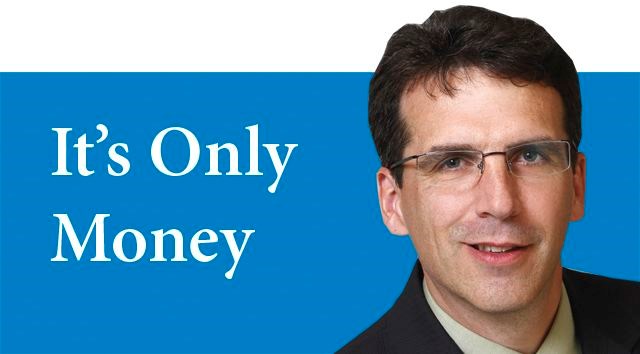A family friend returned not long ago from a trip to an East-African nation, where he oversaw the construction of a job-generating facility. He hopes the venture eventually becomes self-sufficient, benefitting local families perpetually. He and his family were grateful for the chance to experience another part of the world, but this was something beyond "voluntourism."
Most touching of all was the gratitude of the people they rubbed shoulders with there. Many of his employees initially came to work barefoot and got by on one modest meal per day. Those few children who were able to attend school studied hard - their hope for a ticket out of poverty - but resources are thin. It is not uncommon for children to write feverishly on a precious piece of paper, then erase the whole page and use it again. This repeats until the page is so frayed it is unusable.
Despite dire circumstances, corrupt government, overcrowding, disease and venomous critters everywhere, the people are generally very happy. What a contrast to the impending December we face here, where maybe one of our biggest fears is to eat too much.
Philanthropy
Support a cause that's important to you; do a good deed to pay it forward; help the needy after a life-changing disaster; volunteer time to a charity you are inspired by - these are just some of the ways many of us give. Yet while the majority of Canadians - over three-quarters of those age 15 and over - make some form of charitable donation over the course of the year, our giving tends to be mostly reactional and sporadic in nature. Most of us don't incorporate giving into our overall wealth or estate plan.
Why give?
You might want to express your values in a tangible way. Preserving those values in your lifetime - and beyond - can be greatly enhanced with some financial planning. For many, the first priority is to pass wealth to the next generation, but if you build philanthropy into your wealth transfer plans, some remarkable tax benefits might greatly enhance your impact.
A giving nation
Canadians are broadly a generous people. A 2013 Johns Hopkins study found that Canadian charitable giving is growing faster than the overall economy and represents some 8.5 per cent of our GDP, second only to manufacturing.
Finding the right balance in giving
Giving can take on many forms but it generally exists within two main categories. One end of the spectrum includes charitable donations which are completely spontaneous, in response a disaster. This may also include donations made at a specific time of year, such as the Christmas holidays.
On the other end of the spectrum is strategic giving - structured and targeted. Individuals can map out their charitable intent and create a lasting impact both during their lifetime and beyond, even perpetually. In some cultures, this is even considered a concrete form of eternal life, having your name live on forever in your legacy contributions.
Regardless of what your personal beliefs are, there are a number of ways to incorporate philanthropic giving into your wealth transfer plans. This more strategic approach can result in a more meaningful giving experience for the donor and create a greater impact on society over the long term.
Giving by the calendar
According to the Canada Helps 2017 Giving Report, of all donations that are made over the course of the year, 35 per cent happen in December, with 10 per cent on the last three days of December alone.
Reflecting on your personal values
When considering any form of wealth transfer, whether it's passing wealth to heirs or incorporating philanthropy into your long-term plans, it's crucial to thoroughly assess your own financial needs first. After detailed wealth planning you might determine that this is something you can afford, then pursue it in a more strategic way. There are a range of options available.
If at this point there is a definite surplus, reflect on your current giving approach and how it meshes with your core values. You or a loved one may have a personal history with a life-changing cause, such as a school, a hospital, a faith group, the environment or the arts. Thinking this through will help form the basis of your plan. It will provide clearer direction for structuring the most ideal approach to make your mark on the world in a way that balances personal, family and tax considerations.
To ensure your specific circumstances are properly accounted for, consult with a qualified tax and estate planning advisor to receive guidance around how charitable giving could fit into your overall financial picture. Also speak openly with them about the potential amounts, timing and the type of your gift.
Considerations
Whatever the drivers behind your giving are, some important personal and strategic questions to examine include:
How much time and/or financial support are you comfortable committing to a charitable endeavour or giving now and over the long term?
Do you feel strongly about continuing to support a cause or an organization not only during your lifetime, but after as well?
What are the potential income tax considerations associated with giving during your lifetime versus through your will?
More on this topic next week.
Mark Ryan is an investment advisor with RBC Dominion Securities Inc. (Member-Canadian Investor Protection Fund), and these are Ryan's views, and not those of RBC Dominion Securities. This article is for information purposes only. Please consult with a professional advisor before taking any action based on information in this article. See Ryan's website at: http://dir.rbcinvestments.com/mark.ryan



